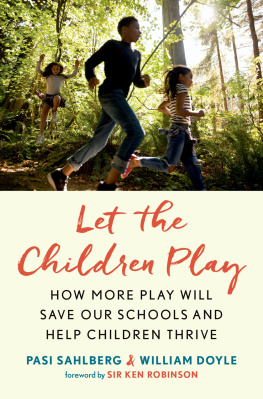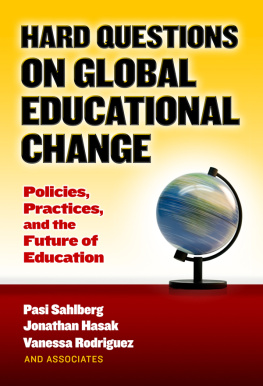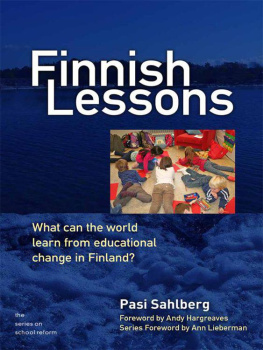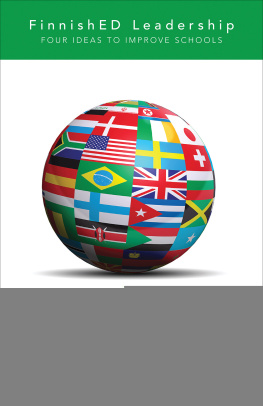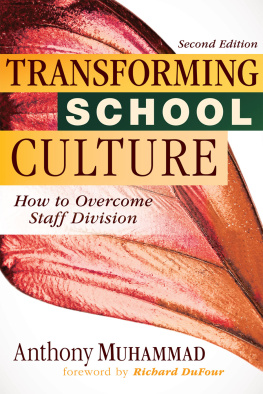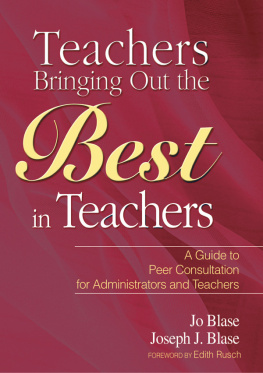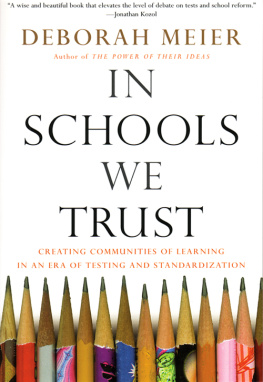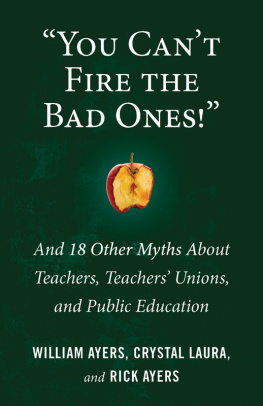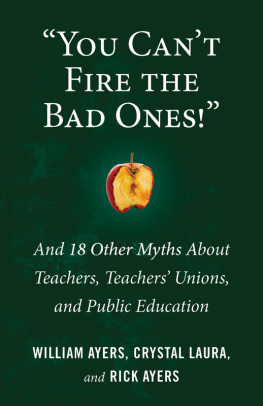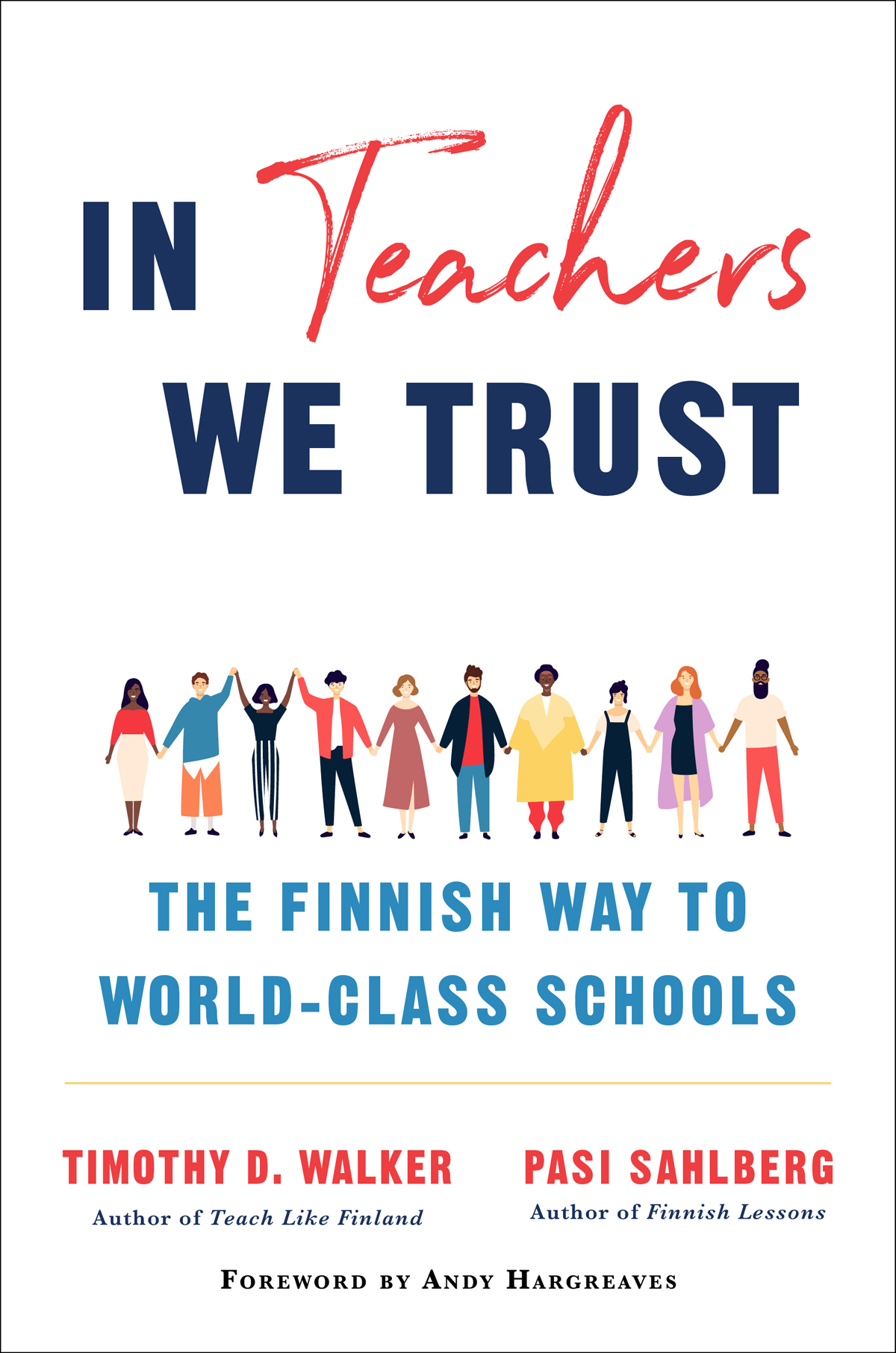Contents
Guide
Page List


THE FINNISH WAY TO WORLD-CLASS SCHOOLS

PASI SAHLBERG AND TIMOTHY D. WALKER
FORWARD BY ANDY HARGREAVES

TO OUR MOTHERS AND FIRST TEACHERS,
MARIA SAHLBERG AND LESLEA WALKER

CONTENTS


O n the day I started writing this foreword, I entered the United States from Canada to give two public lectures. It was a year to the day since my wife and I had returned to Canada, where we are citizens, after 16 years working and residing in the U.S. In many ways these had been wonderful years for us. After moving to the United States in our 50s, my wife and I wondered if wed ever make new friends. But some of the best friends we have ever had are now American. With the superb support of Boston College and the generous endowment behind my Brennan Chair, I was able to experience and contribute great success in research projects, prize-winning books, teaching classes, and much more. And we were fortunate enough to experience all eight years of Barack Obamas presidency.
One of the most challenging aspects of America, though, is the simple act of getting in and out. And it was no different this time. As I presented my documents to the immigration officer, he looked at my file and scanned his computer.
Do you still have a Green Card? he asked, gruffly.
No. I handed it in a year ago to this day at the border, I said.
I handed him a piece of paper. Heres my Certificate of Abandonment, I said. Its a strange term to adopt for deciding to move from a country and renounce employment and permanent residence rights. Abandonment suggests lack of responsibility or commitment; something a bit shameful, even callous or uncaring. In law, abandonment means to cast away, leave or desert, as property or a child. So thats it. Leaving a country where youve lived and made a constructive contribution to the economy and society for 16 years is construed as being like leaving the country behind as if it were your child.
The language of leaving the United States is no less delicate than the language of arriving. Come to the United States to be a resident, and if you are not yet, or not at all, a full citizen, you will see your identity staring back at you from the page, as that of an Alien. Like some unwanted intruder from outer space, to gain entry you must answer a whole battery of questions including whether you have ever committed genocide. I wonder if anyone has ever answered yes to this question, or perhaps confessed, Just a bit, but that was a long time ago now. Everyones answer is going to be no (unless they cant read the form, of course), but they still have to write it down and say it anyway. Otherwise, unless it is there in black and white, off they might go, liquidating an entire species before you know it.
The immigration officer turned back to me. Whyd you leave? he growled. For a moment, words like Trump, Hell in a handbasket, and various other phrases crossed my mind. But who am I to get on my high horse? After all, I was born and raised in, and am a citizen of, the land of Boris Johnson and Brexit! So, then I gave him the most diplomatic bit of the truth. Grandchildren, I replied. Three of them. They all live in Ottawa.
Well, I guess thats a good reason, he conceded, and sent me on my way.
Entering or leaving the United States is a process that is shot through with low trust. You are under suspicion from the start. You are not welcomed or embraced for coming to join the land of the free and the home of the brave, to embrace life, liberty, and the pursuit of happiness. Instead, you are presumed to be up to no good until proven otherwise. Everyone, practically, is an object of suspicion. In 2021, weve seen a lot of it in the culture of U.S. law enforcement. And it also applies at security.
Now with good cause, in an age of global terrorism and hijacking, there is every reason to have airport security, metal detectors, body scans, and the like. The paraphernalia of security exists in airports almost everywhere. Its not the technology of security that distinguishes one nation or system from another, though, but how security officers behave. In most countries, they are professional, polite, systematic, and discreet. If you make a mistake, like leaving a Swiss Army knife in your bag (which I did once), its assumed to be an oversight, one that any reasonable person could make. I well remember being behind a gentleman in Copenhagen who was asked to show the security officer the contents of a long, thin case. The officer unbuckled the end of the case and removed what turned out to be a large ceremonial antique sword. There were a few seconds of silence, then the officer quietly turned to the owner and said, Perhaps youd like to put that through as checked baggage, sir.
In the United States, though, you can hear security officers from the other side of the room, even before you turn the corner to line up. Like sergeants conducting a drill for a platoon of marine recruits, they are barking out orders to everyone within earshot. You need to remove all liquids. Liquids must be in a Ziploc bag. Take out cell phones, laptops, and all electronic devices. Remove your shoes and belts. Take all metal objects out of your pockets. Suddenly, you are not a passenger, a citizen, a customer, or even a human being with basic dignity. You are a subordinate, like an adolescent in junior high school, someone who is obviously incompetent or intransigent and needs to have every instruction shouted out at top volume in order to comply.
This is a system of low trust, or even no trust. People cannot be trusted to remove the right items from their bag or take off the correct items of clothing at the right time in the right way. They must be given explicit instructions down to the last detail at full volume. No wonder America has more lawyers per capita than any other country. Unless everything is said or written down in unmistakable letters explicitly, someone might sue you if anything goes wrong. So youd better make sure everyone gets the message, over and over again. All this makes for an environment that actually increases tension, stress, and feelings of being unsafe, rather than the opposite.
How people deal with you at security checkpoints, or in state agencies where you may be getting a Social Security card or a drivers license, is a reflection of something about the entire society: its levels of trust.
Compared to other developed economies, the United States suffers from two closely connected extremes. It has one of the highest levels of economic inequality. It also has some of the lowest levels of trust in the developed world. In their best-selling books,


